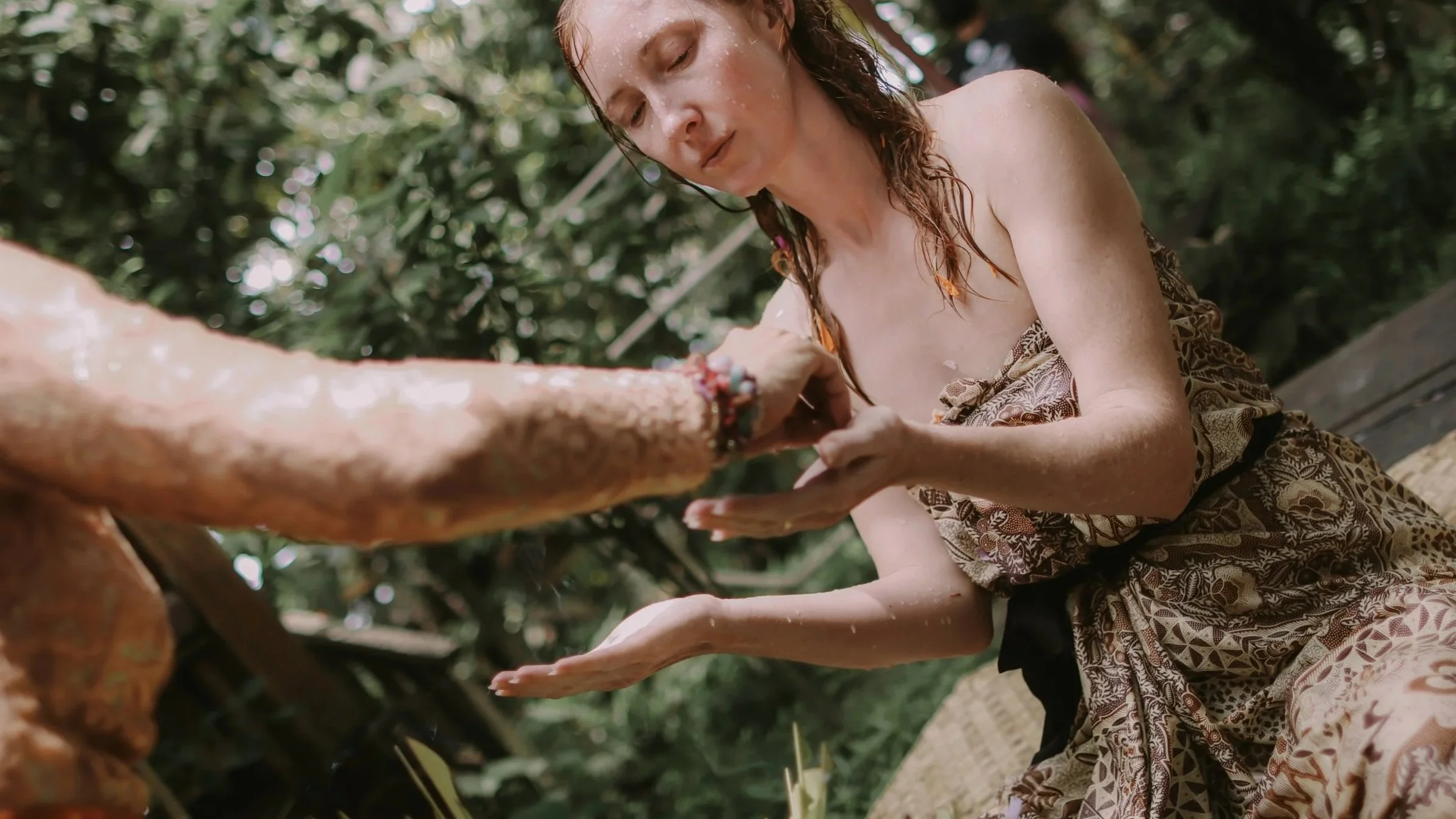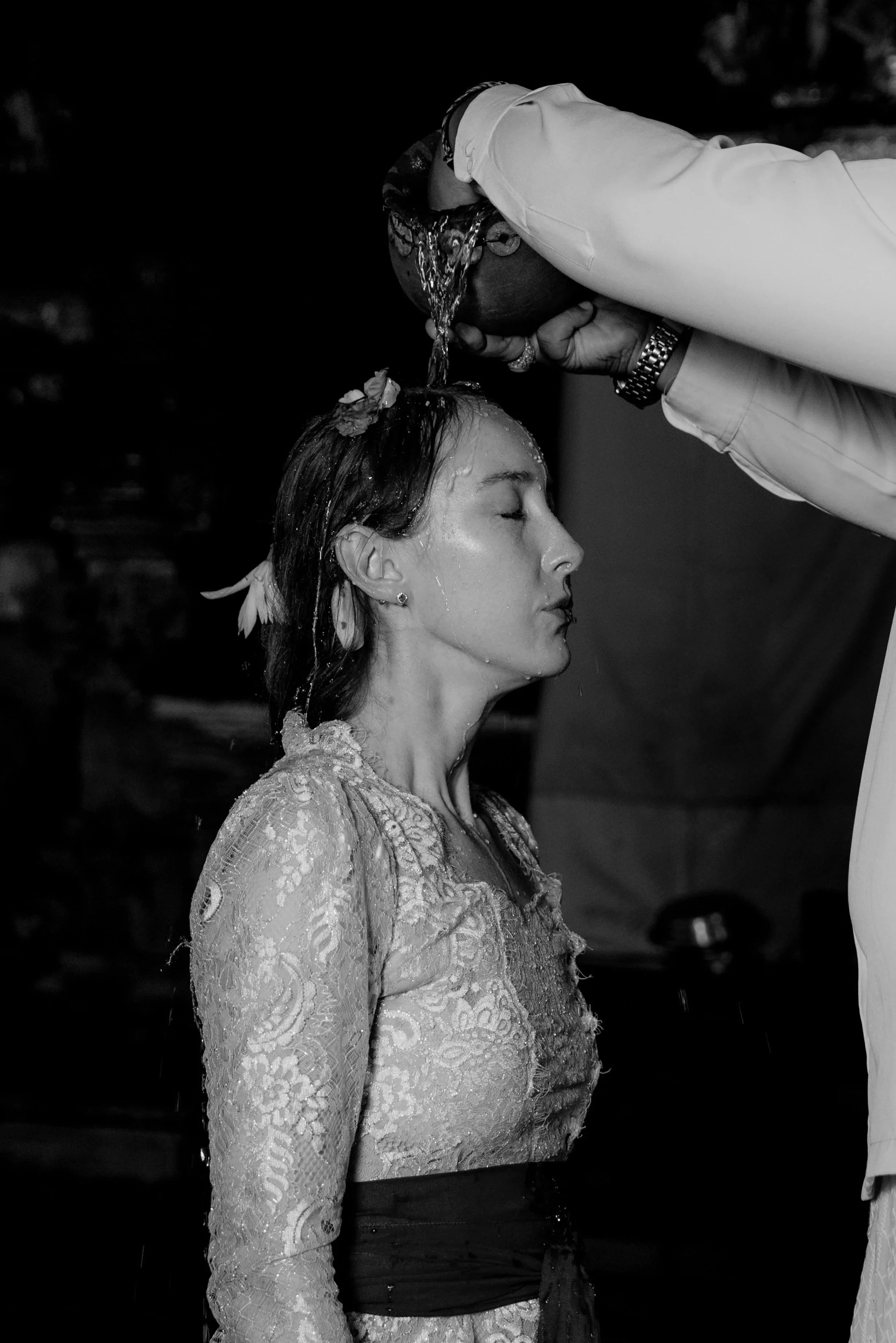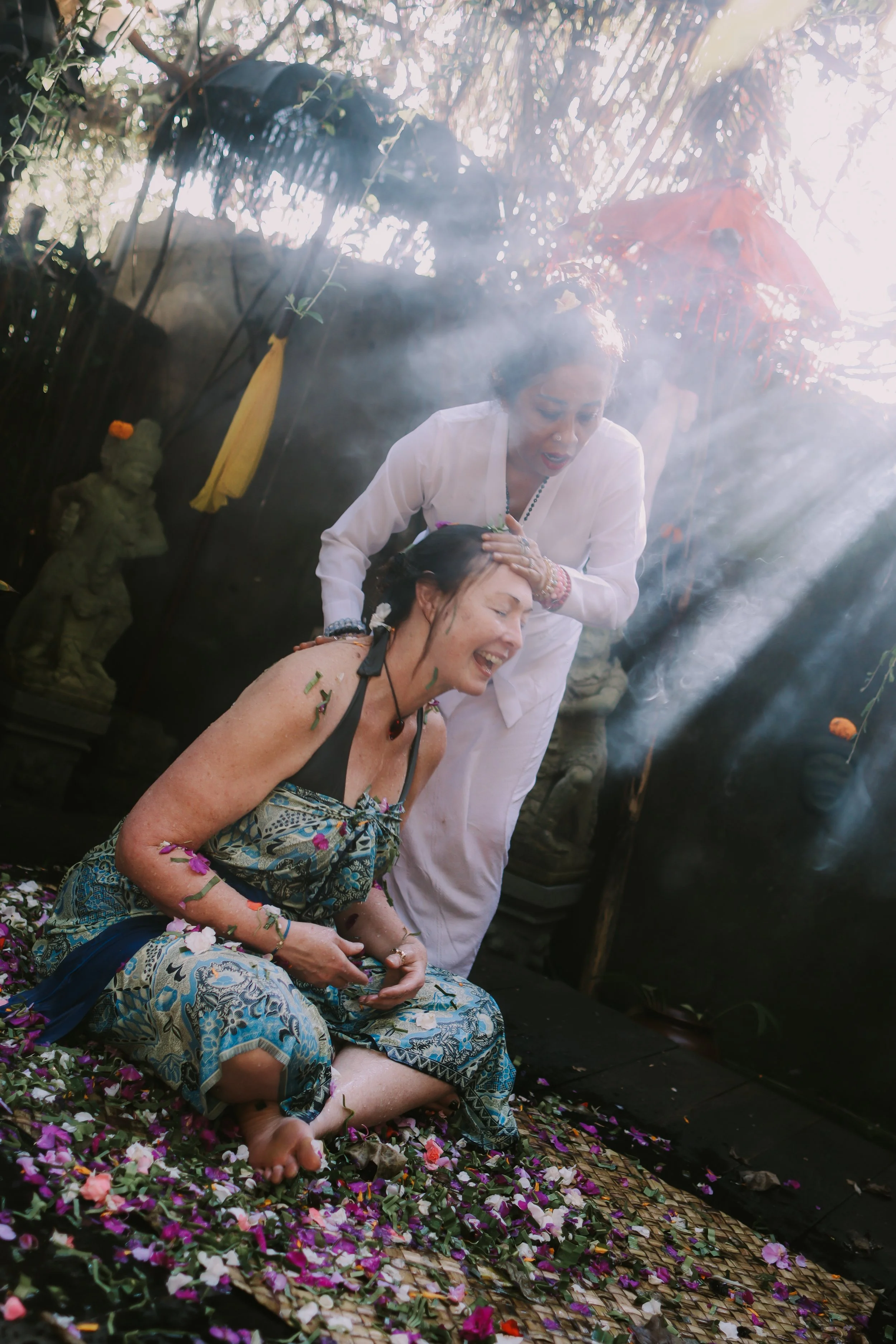Healing Holidays began as an exploration. Over time, the work clarified. As of January 2026, our focus has narrowed and deepened — toward therapist-led retreats in Bali, held with care, cultural respect, and integration.
Read MoreBoundaries rarely arrive as big declarations. Most begin quietly—in the body—long before we find words for them. A tightening in the chest, a breath that doesn’t land, a sense of being slightly too close to the edge of yourself. This piece explores the subtle, somatic ways boundaries form, why they often feel like grief and clarity at the same time, and how rituals in Bali model healthy containers for connection. Boundaries aren’t about keeping people out; they’re about keeping you in.
Read MoreAfter crisis comes the quieter work — teaching the body that calm is safe. In this reflection on trauma recovery and Balinese healing, Jade explores integration as an act: the slow matching of mind and body, and the tender aftermath known as the vulnerability hangover.
Read MoreIn Bali, a therapist came to observe—but instead, she remembered what it feels like to rest. Between online sessions and sacred ceremony, she laid down the invisible weight she carried for others. Holding Healers traces what happens when women who hold everyone else allow themselves to be held in return. From A Room of One’s Own to Eat Pray Love to Women Don’t Owe You Pretty, this reflection honours the long lineage of women choosing rest as rebellion—and love as the most radical form of repair.
Read MoreOur bodies are fluent in a language we often forget to hear. Long before words, the nervous system is already asking: Am I safe? Am I held? Polyvagal theory calls this neuroception — the body’s radar for danger or belonging. A steady hand, a calm breath, the rhythm of ritual: these are not small things. They are maps. They show us how to anchor in the storm, how to surrender without being lost. At Healing Holidays, this is the work we return to — not erasing the storm, but learning to pass through it, together.
Read MoreDoubt doesn’t mean you’re lost. It means you’ve been disconnected. For years I let my body be defined by others — first sexualised, then reduced to motherhood. Only recently have I begun reclaiming it as the sovereign, divine vessel it has always been. This is what it means to trust what you feel: letting the body lead, even when the mind spirals.
Read MoreHealing Holidays began with a promise: to ensure that every step of the healing journey is held with care. What started as retreats shaped in consultation with participants’ own therapists has now evolved into a therapist-led experience in Bali. This October, veteran psychotherapist Sam Forbes brings more than 30 years of trauma recovery expertise into our retreat space, blending professional care with Balinese traditions of purification and renewal. Bookings close September 30 2025.
Read MoreSometimes it helps me to zoom out and imagine my healing path as an actual, dusty, packed earth trail beneath my feet. There are flags tied to trees, stone walls I build and dismantle by hand, bridges left to blaze behind me. This imaginal landscape gives form to chaos when my nervous system is frayed. Modern science calls it the observer effect. Jung called it active imagination. I call it survival turning into medicine.
Read MoreWhen desire begins to return after trauma, it feels like tasting water after a long thirst. Safety unlocks the body’s capacity to want — not just in relationships, but in colour, flavour, music, and yes, even in sexuality. Desire is the compass that tells us we are alive again, pointing us toward connection, joy, and truth.
Read MoreWe tend to mistake quiet for calm. But in the nervous system, quiet can be anything but. It can be a body braced against touch, a breath held too high in the chest, a silence that conceals pressure building underneath. What looks like stillness is often survival. And yet, even here, the body is asking for something simple: a steadier breath, a safer touch, a place where release is possible.
Read MoreI had a nervous breakdown. Not the dramatic, movie-scene kind — the slow kind. The kind that creeps in under the weight of years. Of doing, absorbing, performing. This is the story of what happened when I finally stopped, and what it taught me about repair, rest, and remembering who I am — before the breaking point.
Read MoreWhat happens when the internal structure that held your life together collapses? When safety, identity, and meaning fall away all at once? This piece explores the deep disorientation of losing coherence—and how that breakdown, while terrifying, might also be the beginning of something more honest, more human, and more real.
Read MoreIn trauma recovery, not everything can be spoken — and not everything needs to be. Ritual offers a symbolic structure where the body can begin to feel what the mind may not yet understand. This piece explores how traditional Balinese practices, when held with care and cultural integrity, can gently support therapeutic work by giving form to the formless, reverence to the unspoken, and presence to what’s been waiting to be met.
Read MoreBali was a season in my life. Like adolescence, like grief, like the slow reshaping that happens when you’re no longer who you were—but not yet who you’ll become.
There, I stepped into what Jung might call the third space. Not just as a concept, but as a lived experience: where ritual didn’t just honour change—it gave it form.
This piece isn’t about replacing clinical frameworks. It’s about widening the field of what healing can mean—beyond language, into something felt, embodied, and respectfully held.
Read MoreRecovery hasn’t felt like a breakthrough. It’s felt like a shedding. I am not who I was when I left, and returning to my life has felt like waking up in someone else’s dream. Everything familiar—but slightly off. I’m not just reclaiming my energy. I’m reclaiming myself. It doesn’t look like bouncing back. It looks like thawing. At first, you’re still. Then you’re soft. Then, slowly, you start to feel again—the ache, the grief, the hunger—for life, for joy, for yourself.
Read MoreBurnout isn’t just a mental state—it’s a physical one. It shows up in your hormones, your appetite, your ability to feel joy. In this piece, we explore what happens when stress becomes chronic, when the nervous system forgets how to rest, and how one woman began to heal not by doing more—but by finally being witnessed.
Read More















